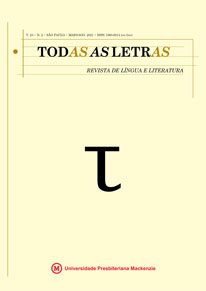Education during Covid-19 pandemic times
Keywords:
Education, Pandemic, Remote learning, Educational practices, Online teachingAbstract
This work intends to reflect on educational context in these times of pandemic: the impact on education and its dynamics – impact on education and its dynamics, the impact on teaching performance, the impact on students and their families. We know that a virus called coronavirus, which causes Covid-19, has devastated the world. Several news regarding the virus were broadcasted in terrifying and mismatched versions on the media in general (radio, television, internet, social networks). The year of 2020 started and different governments around the world took different positions. Schools were closed and classes were transferred to remote modalities. The social and work relationships were also changed, which began to be carried out in a virtual environment. Living this pandemonium, teachers had to reinvent themselves by adapting their classes to the new reality and continuing the school year. By seeking multiple ways to use digital media with synchronous and asynchronous classes, the teachers, using their own resources and opening their homes to the school, managed to do their job. This situation affected not only teachers, but students, families, education agents and the traditional conception of teaching and learning. This article, therefore, intends to enlight not only the difficulties faced during this period, but also to bring some reflections that can lead us to effective changes in educational practices, the school environment and its agents.
Downloads
References
BASTOS, N. B.; BRITO, R. P. de. Gramática normativa: ensino, consciência e liberdade. Revista Confluência, v. 1, n. 5, p. 183-197, 2018. DOI 10.18364/rc.v1i55.274. Disponível em: http://llp.bibliopolis.info/confluencia/rc/index.php/rc/article/view/274. Acesso em: 8 jun. 2020.
DIAS, E.; PINTO, F. C. F. “A Educação e a Covid-19”. Ensaio: Avaliação e Políticas Públicas em Educação, v. 28, n. 108, p. 545-554, 2020. DOI 10.1590/S0104-40362019002801080001. Disponível em: https://www.scielo.br/j/ensaio/a/mjDxhf8YGdk84VfPmRSxzcn/?lang=pt&format=pdf. Acesso em: 8 jun. 2020.
FREIRE, P. Extensão ou comunicação? 10. ed. São Paulo: Paz e Terra, 1992.
MAIA, B. R.; DIAS, P. C. Ansiedade, depressão e estresse em estudantes universitários: o impacto da COVID-19. Estudos de Psicologia, Campinas, v. 37, e200067, p. 1-8, 2020. DOI 10.1590/1982-0275202037e200067. Disponível em: https://www.scielo.br/j/estpsi/a/k9KTBz398jqfvDLby3QjTHJ/?format=pdf&lang=pt. Acesso em: 3 mar. 2020.
PISA – Ranking de educação mundial: entenda os dados do Brasil. Lyceum, São Paulo, 26 jul. 2019. Disponível em: https://blog.lyceum.com.br/ranking-de--educacao-mundial-posicao-do-brasil/. Acesso em: 14 dez. 2020.
VALENTE, J. Um em cada 4 brasileiros não tem acesso à internet, mostra pesquisa. Agência Brasil, Rio de Janeiro, 29 abr. 2020. Disponível em: https://agenciabrasil.ebc.com.br/economia/noticia/2020-04/um-em-cada-quatrobrasileiros-nao-tem-acesso-internet. Acesso em: 19 mar. 2020.
VASCONCELOS, M. L.; BRITO, R. H. P. Conceitos de educação em Paulo Freire. 6. ed. Petrópolis: Vozes; São Paulo: MackPesquisa, 2019.
Downloads
Published
How to Cite
Issue
Section
License
The originals accepted and published become property of Mackenzie Presbyterian University, being forbidden their total or partial reproduction without permission of the Editorial Board, except for study and research.




